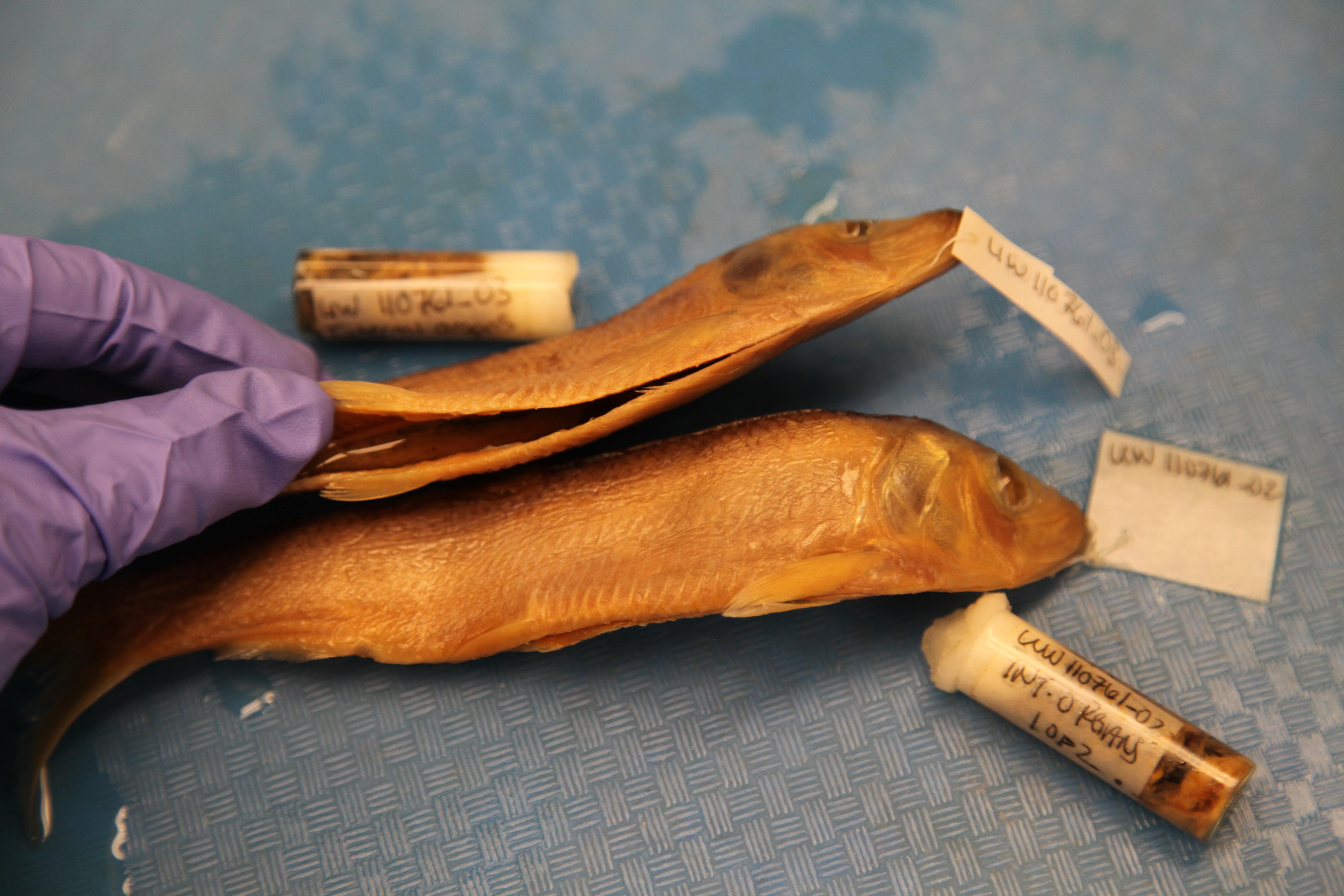Warming oceans have destroyed many marine parasites, study suggests
While the tiny creatures prompt fear or disgust in many, their decline is worrying news for ecosystems, the scientists say.

Your support helps us to tell the story
From reproductive rights to climate change to Big Tech, The Independent is on the ground when the story is developing. Whether it's investigating the financials of Elon Musk's pro-Trump PAC or producing our latest documentary, 'The A Word', which shines a light on the American women fighting for reproductive rights, we know how important it is to parse out the facts from the messaging.
At such a critical moment in US history, we need reporters on the ground. Your donation allows us to keep sending journalists to speak to both sides of the story.
The Independent is trusted by Americans across the entire political spectrum. And unlike many other quality news outlets, we choose not to lock Americans out of our reporting and analysis with paywalls. We believe quality journalism should be available to everyone, paid for by those who can afford it.
Your support makes all the difference.Warming oceans have destroyed marine parasites, suggesting they may be especially vulnerable to climate change, researchers say.
According to a new study, more than a century of preserved fish specimens offer a rare glimpse into long-term trends in parasite populations.
Research from the University of Washington (UW) indicates the number of fish parasites fell from 1880 to 2019, a 140-year stretch when Puget Sound – their habitat and the second largest estuary in the mainland US – warmed significantly.
Researchers say that if a similar level of decline occurred in species people “care about”, it would trigger conservation efforts.
Our results show that parasites with one or two host species stayed pretty steady, but parasites with three or more hosts crashed
While the tiny creatures prompt fear or disgust in many, their decline is worrying news for ecosystems, the scientists say.
Lead author Chelsea Wood, a UW associate professor of aquatic and fishery sciences, said: “People generally think that climate change will cause parasites to thrive, that we will see an increase in parasite outbreaks as the world warms.
“For some parasite species that may be true, but parasites depend on hosts, and that makes them particularly vulnerable in a changing world where the fate of hosts is being reshuffled.”
Researchers say the study is the world’s largest and longest dataset of wildlife parasite abundance.
It suggests that parasites may be especially vulnerable to a changing climate.
Although some parasites have a single host species, many travel between host species.
Eggs are carried in one species, and then when the larvae emerge they infect another host and the adult may reach maturity in a third host before laying eggs, researchers say.
Dr Wood said: “Our results show that parasites with one or two host species stayed pretty steady, but parasites with three or more hosts crashed.
If this can happen unnoticed in an ecosystem as well studied as this one, where else might it be happening?
“The degree of decline was severe. It would trigger conservation action if it occurred in the types of species that people care about, like mammals or birds.”
She added: “Parasite ecology is really in its infancy, but what we do know is that these complex-lifecycle parasites probably play an important role in pushing energy through food webs and in supporting top apex predators.”
The researchers used a new method for resurrecting information on parasite populations of the past.
Mammals and birds are preserved with taxidermy, which retains parasites only on skin, feathers or fur.
However, fish, reptile and amphibian specimens are preserved in fluid, which also preserves any parasites living inside the animal at the time of its death.
The study focused on eight species of fish that are common in the behind-the-scenes collections of natural history museums.
Most of the samples came from the UW Fish Collection at the Burke Museum of Natural History and Culture.
Researchers carefully sliced into the preserved fish specimens and then identified and counted the parasites they discovered inside before returning the specimens to the museums.
The researchers discovered a number of different parasites, including arthropods, or animals with an exoskeleton, including crustaceans, as well as what Dr Wood describes as “unbelievably gorgeous tapeworms”.
In total, the team counted 17,259 parasites, of 85 types, from 699 fish specimens.
Dr Wood explained: “This study demonstrates that major parasite declines have happened in Puget Sound.
“If this can happen unnoticed in an ecosystem as well studied as this one, where else might it be happening?”
She added: “Our result draws attention to the fact that parasitic species might be in real danger.
“And that could mean bad stuff for us – not just fewer worms, but less of the parasite-driven ecosystem services that we’ve come to depend on.”
The findings are published in the Proceedings of the National Academy of Sciences.